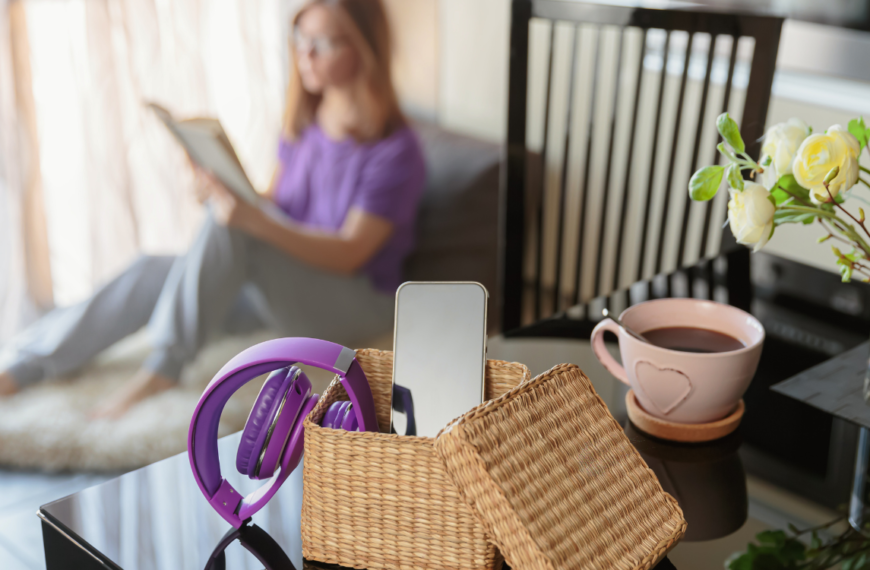In today’s fast-paced world, mental health has become a priority for many people. As we navigate the demands of work, family, and social obligations, it’s easy to forget the importance of taking care of our mental and emotional well-being. Self-care is more than just a trendy buzzword; it’s a vital practice that helps maintain a balanced routine, reducing stress and promoting overall happiness. This blog post will explore practical self-care tips and techniques to help individuals create a balanced routine that supports mental health and emotional well-being.
1. Understanding Self-Care and Its Importance
Self-care involves intentional actions taken to nurture one’s mental, emotional, and physical health. It is about being proactive in managing stress, preventing burnout, and maintaining a healthy balance in daily life. Self-care is not a one-size-fits-all solution; it varies from person to person based on their needs, preferences, and lifestyle. However, the core idea remains the same: to create space for rest, reflection, and rejuvenation.
Mental health experts agree that self-care is crucial for emotional well-being. It helps to manage stress, reduce anxiety, improve mood, and build resilience. When we prioritize self-care, we are better equipped to handle life’s challenges and maintain healthy relationships.
2. Establishing a Balanced Daily Routine
A balanced routine is the foundation of effective self-care. Having a structured day helps in managing time efficiently and reduces feelings of overwhelm. Here are some key components of a balanced daily routine that support mental health:
- Create a Morning Ritual: Start your day with activities that set a positive tone. This could include stretching, meditation, deep breathing exercises, or a few minutes of gratitude journaling. A calm and centered start can help you stay focused and energized throughout the day.
- Plan Breaks and Rest Periods: Incorporate short breaks throughout your day to recharge. Whether it’s a five-minute walk, a quick meditation session, or simply stepping away from your desk, breaks can help refresh your mind and prevent burnout.
- Prioritize Sleep: Sleep is essential for mental health. Establish a regular sleep schedule, aiming for 7-9 hours of quality sleep each night. Good sleep hygiene includes turning off screens an hour before bed, keeping the bedroom dark and cool, and practicing relaxation techniques like reading or deep breathing.
3. Mindfulness Practices for Emotional Well-Being
Mindfulness is the practice of staying present and fully engaging with the current moment. It helps cultivate awareness and acceptance, reducing the impact of negative thoughts and emotions. Incorporating mindfulness into your daily routine can have profound benefits for your mental health.
- Mindful Breathing: Take a few minutes each day to focus on your breath. Inhale deeply through your nose, hold for a few seconds, and exhale slowly through your mouth. This practice helps calm the mind and body, reducing stress and anxiety.
- Body Scan Meditation: A body scan is a mindfulness exercise where you focus on different parts of your body, noticing any tension or discomfort. Starting from your toes and working your way up, consciously release tension and relax each body part. This practice can enhance body awareness and promote relaxation.
- Gratitude Journaling: Take a few minutes each day to write down three things you are grateful for. Focusing on the positives can shift your mindset from negativity to appreciation, boosting your mood and overall mental health.
4. Physical Activity and Its Role in Self-Care
Regular physical activity is a powerful tool for maintaining mental health. Exercise releases endorphins, the body’s natural mood elevators, and helps reduce stress, anxiety, and depression. It also improves sleep, boosts self-esteem, and enhances cognitive function.
- Find an Activity You Enjoy: The key to staying consistent with exercise is to find an activity you genuinely enjoy, whether it’s walking, cycling, yoga, dancing, or swimming. Choose something that makes you feel good and fits your lifestyle.
- Incorporate Movement into Your Day: You don’t need to spend hours at the gym to benefit from exercise. Simple activities like taking the stairs, walking during phone calls, or stretching at your desk can keep you active throughout the day.
- Set Realistic Goals: Start with small, achievable fitness goals that align with your current fitness level. Over time, gradually increase the intensity and duration to build strength and endurance.
5. Healthy Eating for Mental Health
Nutrition plays a vital role in mental well-being. A balanced diet rich in whole foods, fruits, vegetables, lean proteins, and healthy fats can help stabilize mood and energy levels. The gut-brain connection is well-established; what you eat can significantly impact your mental health.
- Eat Regular, Balanced Meals: Skipping meals or eating irregularly can lead to blood sugar fluctuations, which can affect mood and energy. Aim for regular, balanced meals to maintain stable energy levels.
- Include Brain-Boosting Foods: Incorporate foods rich in Omega-3 fatty acids, such as salmon, walnuts, and flaxseeds, which are known to support brain health. Antioxidant-rich foods like berries, dark chocolate, and leafy greens can also reduce inflammation and promote cognitive function.
- Stay Hydrated: Dehydration can lead to fatigue and concentration problems, impacting your overall well-being. Ensure you drink enough water throughout the day to stay hydrated.
6. Building Supportive Social Connections
Human beings are inherently social creatures, and maintaining meaningful relationships is crucial for mental health. Social connections provide emotional support, reduce feelings of loneliness, and enhance overall happiness.
- Nurture Positive Relationships: Spend time with people who uplift and support you. Whether it’s family, friends, or a support group, having a strong social network can provide comfort during tough times.
- Set Boundaries: Healthy relationships also involve setting boundaries. Learn to say no when necessary and prioritize your mental health. It’s okay to distance yourself from negative or draining relationships.
- Reach Out for Support: Don’t hesitate to seek help if you’re feeling overwhelmed. Talking to a trusted friend, family member, or mental health professional can provide the support you need.
7. Engage in Activities that Bring Joy
Engaging in activities that bring you joy is an essential aspect of self-care. Whether it’s reading, gardening, painting, listening to music, or cooking, make time for hobbies and activities that make you happy.
- Schedule “Me Time”: Set aside time each week to engage in something you love. Treat this time as sacred and non-negotiable, just like any other important commitment.
- Explore New Interests: Trying new hobbies or activities can be exciting and refreshing. It can also introduce you to new people and experiences, broadening your perspective and enhancing your emotional well-being.
8. Seek Professional Help When Needed
While self-care is essential, it is not a substitute for professional mental health treatment. If you are struggling with persistent feelings of sadness, anxiety, or any other mental health concerns, seeking help from a mental health professional is crucial.
- Therapy and Counseling: Therapists can provide support, coping strategies, and a safe space to explore your feelings and challenges. Cognitive-behavioral therapy (CBT), mindfulness-based therapy, and other modalities can be highly effective.
- Medication Management: For some individuals, medication may be necessary to manage certain mental health conditions. Consult a psychiatrist or primary care provider to discuss the best options for you.
Conclusion
Creating a balanced routine for emotional well-being involves incorporating various self-care practices that cater to your unique needs. From mindfulness and exercise to proper nutrition and social connections, each component plays a vital role in supporting mental health. Remember, self-care is not a luxury; it’s a necessity. By prioritizing self-care, you invest in your well-being, resilience, and happiness, enabling you to live a more fulfilled and balanced life. Start small, be consistent, and remember that taking care of yourself is the first step towards a healthier mind and body.

















